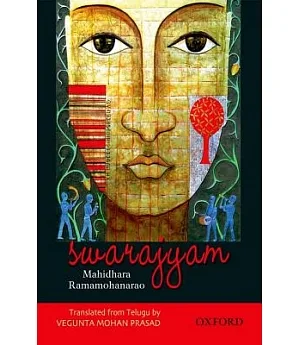It is 1921 and the ripples of the Freedom Movement have reached the quiet village of Munganda. The stage is set for the dramatis personae: an idealistic young Brahmin, Ramanatham, an admirer of
Gandhi; an intelligent young woman, Swarajyam, who instinctively yearns for liberation from stifling social mores and discrimination; and a village with a full cast of characters who strive to
cling to the past while being inevitably drawn into a very different future. Munganda village is a microcosm of a newly resurgent India which is resonating with Gandhi's clarion call for
political and social liberation. As the novel unfolds, we see Ramanatham battling his own inner doubts while trying to spread Gandhi's message of change. We see Swarajyam, dutiful daughter and
abandoned wife, who dares to be different. This is a novel set almost one hundred years ago; yet it remains relevant for its insights into human hopes and fears and its portrayal of the
continual tussle between tradition and modernity, both in thought and choices. The Introduction by M. Sridhar and Alladi Uma shows how Swarajyam (meaning 'freedom') holds a special significance
for the country more than forty years after the publication of the Telugu original, which received the prestigious Andhra Pradesh Sahitya Akademi Award in 1969.





















